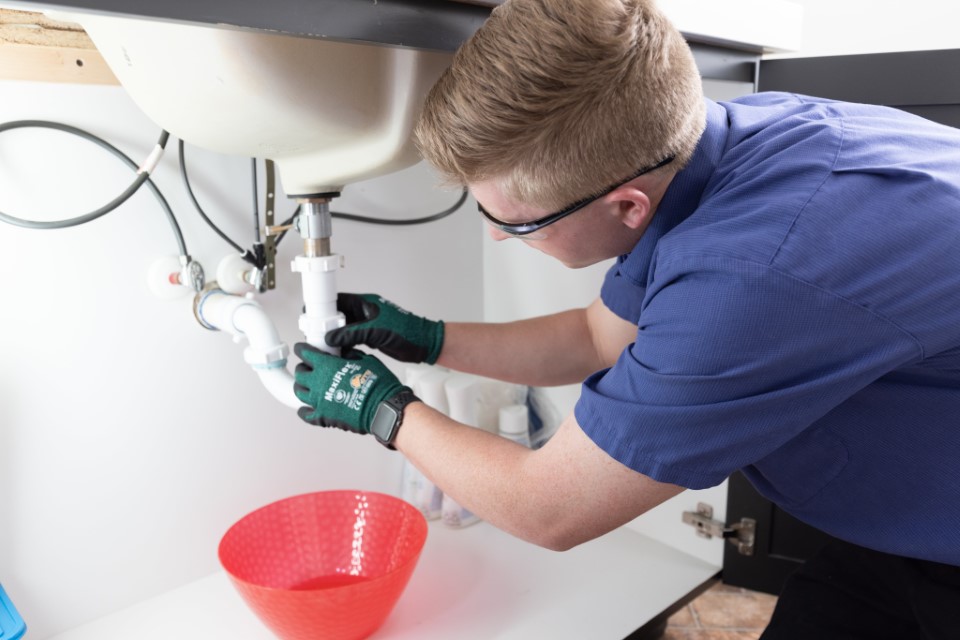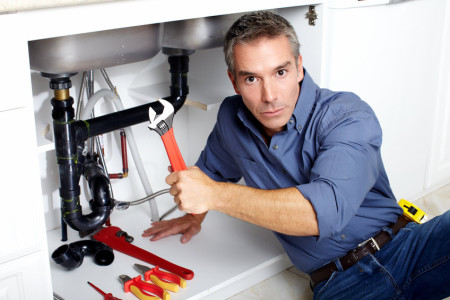Essential Emergency Plumbing Tips to Apply Until Help Arrives
Essential Emergency Plumbing Tips to Apply Until Help Arrives
Blog Article
The article on the next paragraphs pertaining to What to Do During a Plumbing Emergency is especially fascinating. Check it out for yourself and decide what you think about it.

Plumbing emergency situations can strike any time, triggering anxiety and prospective damage to your home. Whether it's a ruptured pipeline, a blocked drain, or a leaky tap, understanding exactly how to manage the scenario till an expert plumbing arrives can conserve you from additional problems. This write-up supplies essential emergency situation plumbing pointers to help you minimize damage and reclaim control during a pipes dilemma.
Switch off the Water System
The first step in any type of plumbing emergency is to turn off the water supply. For localized concerns, such as a leaking tap or toilet, switch off the valve near the component. In the case of a major leakage or burst pipeline, locate your home's primary water shut-off shutoff and turn it off quickly. Knowing the area of these valves in advance can conserve important time throughout an emergency.
Turn off Your Hot Water Heater
In certain emergency situations, such as a ruptured pipe, it's smart to shut down your water heater. This stops getting too hot or damage to the system when water quits flowing. Shut off the power supply to the hot water heater (electric or gas) and let it cool to stay clear of potential dangers.
Momentarily Stop a Burst Pipeline
A ruptured pipe can result in substantial water damages in minutes. To reduce the concern:
Call an expert plumbing technician quickly to resolve the problem permanently.
Have an Emergency Plumbing Set
Prepare a fundamental pipes emergency situation package to handle minor issues efficiently. Your set must consist of:
Having these devices on hand can make a significant difference in your ability to manage emergencies.
Unclog Drains Safely.
A clogged drainpipe can be an irritating and unpleasant concern. Below's just how to tackle it:.
If these methods do not function, prevent utilizing excessive force, as it might aggravate the obstruction.
Manage Overflowing Toilets.
An overflowing commode can create instant chaos. Here's what you need to do:.
Address Little Leaks with Temporary Solutions.
Little leaks can quickly come to be considerable troubles if left untreated. Make use of these momentary fixes till professional aid shows up:.
While these repairs aren't permanent, they can aid reduce water loss and damages.
Manage Frozen Pipes Meticulously.
In chillier environments, frozen pipelines are a common emergency. If you believe a frozen pipeline:.
Know When to Call a Specialist.
While quick fixes can aid temporarily, specific pipes concerns require instant specialist interest. Call a plumber if:.
Promptly getting in touch with an expert makes sure the concern is resolved correctly and prevents further problems.
Prevent Additional Damages.
Taking fast action to reduce damage can conserve you money and time in the long run. Here's exactly how:.
Verdict.
Plumbing emergencies can be overwhelming, but with the best understanding and devices, you can take care of the scenario properly until help arrives. By turning off the supply of water, dealing with small leaks, and utilizing short-term repairs, you can reduce damage and keep your home safe. Remember, these tips are short-lived remedies; constantly seek advice from a certified plumbing to handle the origin of the trouble. Prep work and quick thinking are your ideal allies in any kind of plumbing emergency situation.
Expert Tips for Emergency Plumbing Repairs
Plumbing emergencies can be incredibly stressful and inconvenient. Whether it’s a burst pipe, a clogged drain, or a leaky faucet, these common plumbing emergencies need immediate attention to prevent further damage to your home. But before you panic, it’s important to understand the basics of plumbing repairs and the steps you can take to address these emergencies. In this article, we will share some expert tips to help you navigate through these situations and minimize potential water damage.
Identifying Common Plumbing Emergencies
Leaky pipes and faucets Clogged drains and toilets Burst pipes Low water pressure Water heater problems Essential Tools for Plumbing Repairs
Plunger: Useful for unclogging toilets and drains Adjustable wrench: Needed for tightening or loosening nuts and bolts Pipe wrench: Ideal for gripping and turning pipes Tape measure: Necessary for accurate pipe measurements Plumber’s tape: Helps create watertight seals Understanding Emergency Plumbing Services
Emergency plumbing services are designed to provide immediate assistance for unexpected plumbing issues that can cause significant damage to your home, business, or health. These services are typically available 24/7 and are staffed by experienced plumbers who can quickly diagnose and repair a wide range of plumbing problems.
When a plumbing emergency strikes, time is of the essence. Whether it’s a burst pipe flooding your basement or a gas leak posing a serious risk, emergency plumbing services ensure that help is just a phone call away. These professionals are equipped with the tools and expertise to handle any situation, minimizing damage and restoring your plumbing system to proper working order.
What Constitutes a Plumbing Emergency?
Burst pipes or water supply lines: These can cause extensive water damage and need immediate repair to prevent flooding. Gas leaks or suspected gas leaks: Gas leaks are extremely dangerous and require prompt attention to avoid potential explosions or health hazards. Sewer backups or overflows: These can lead to unsanitary conditions and significant property damage. Clogged drains or toilets causing water to overflow: Overflowing water can damage floors, walls, and other structures. Leaks or water damage causing structural damage: Persistent leaks can weaken the structural integrity of your home or business. No hot water or heating: A lack of hot water can be more than an inconvenience, especially in colder months. Common Causes of Plumbing Emergencies
Aging or corroded pipes: Over time, pipes can deteriorate, leading to leaks or bursts. Improperly installed or maintained plumbing fixtures: Faulty installations or lack of maintenance can result in unexpected failures. Tree roots or other debris infiltrating your sewer line: Roots can grow into pipes, causing blockages and backups. Frozen pipes or water supply lines: In colder climates, pipes can freeze and burst, leading to significant water damage. High water pressure or sudden changes in water pressure: Excessive pressure can strain pipes and fixtures, causing them to fail. Natural disasters such as floods or earthquakes: These events can disrupt your plumbing system and cause severe damage. Steps to Minimize Water Damage
Locate the water shut-off valve: Knowing where the valve is can help you quickly cut off the water supply to the affected area. Turn off the water heater: If there’s a risk of water coming into contact with the heating element, make sure to turn off the water heater to avoid potential accidents. Open faucets and drain pipes: By opening faucets and drain pipes, you can relieve pressure and empty any standing water. Collect and contain water: Use towels, buckets, or bins to collect water and prevent it from spreading to other areas of your home. https://leecountyplumbingandwellservice.com/expert-tips-for-emergency-plumbing-repairs/

I am very enthusiastic about What to Do During a Plumbing Emergency and I'm hoping you appreciated the page. Those who enjoyed reading our article plz make sure you remember to share it. Thanks for your time. Kindly pay a visit to our blog back soon.
Book Services Report this page